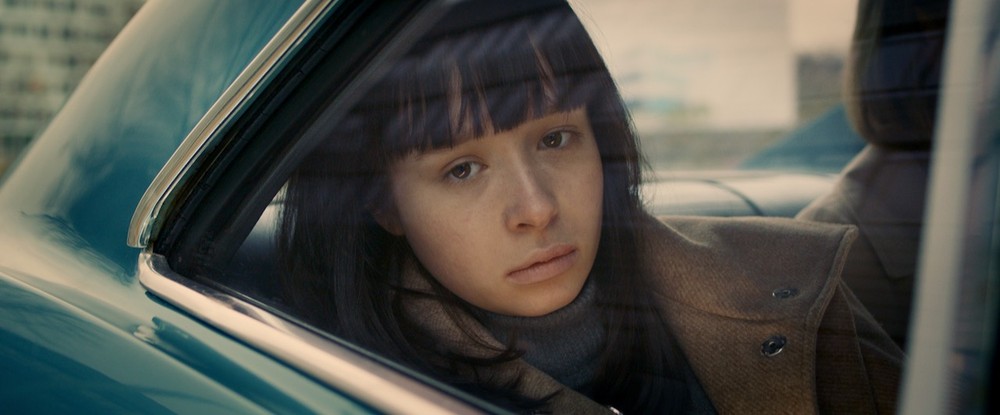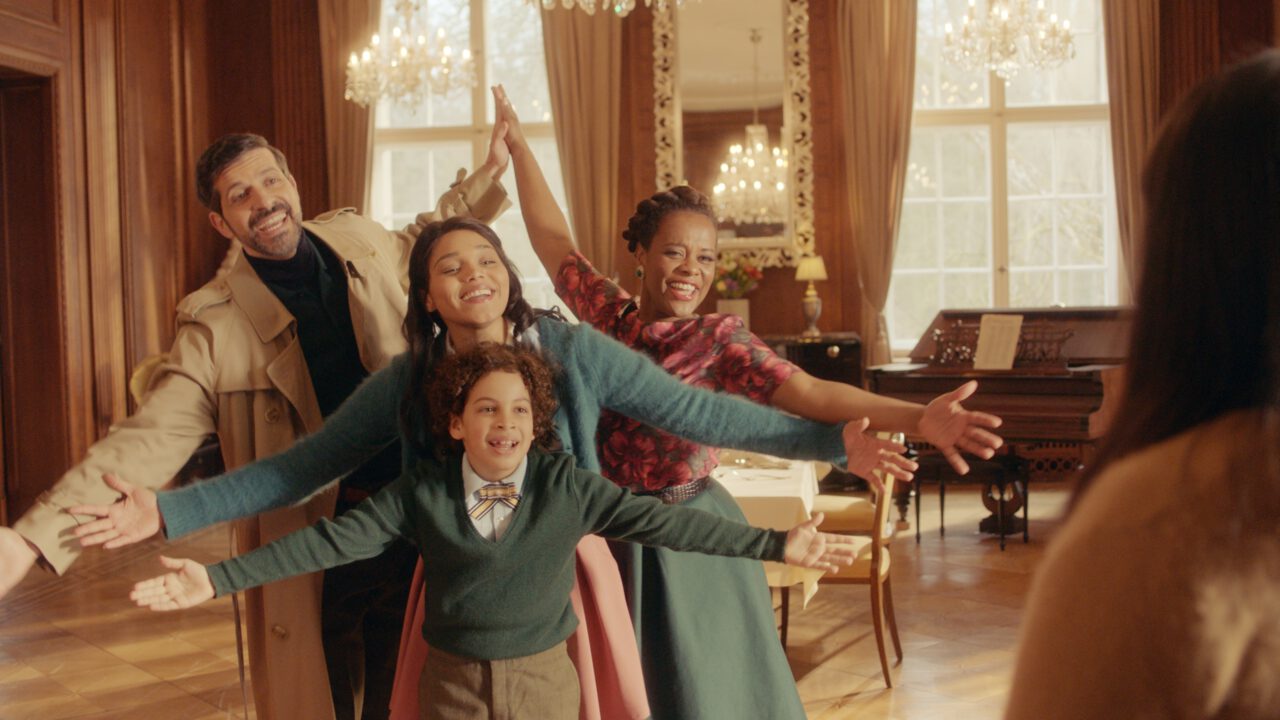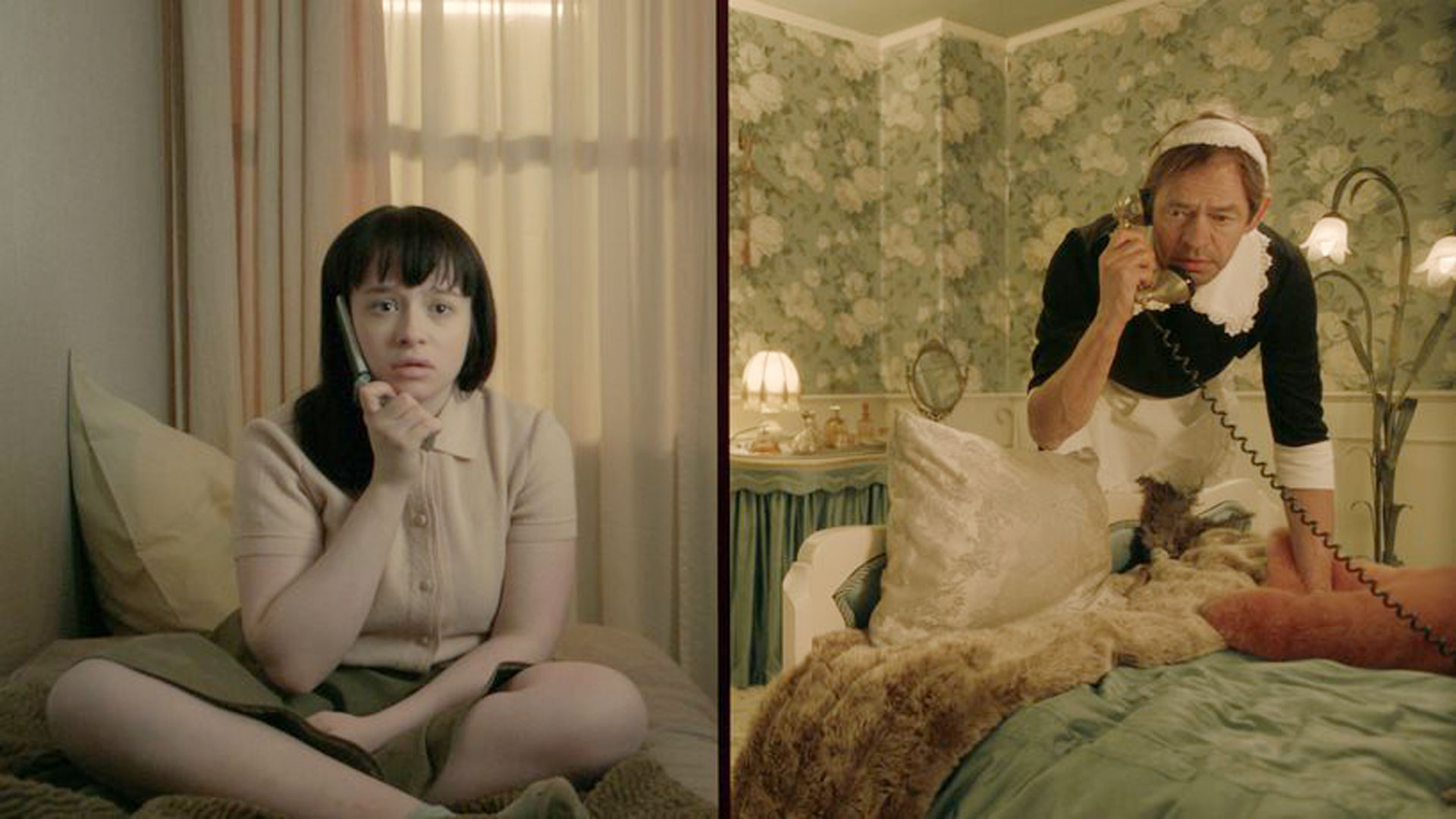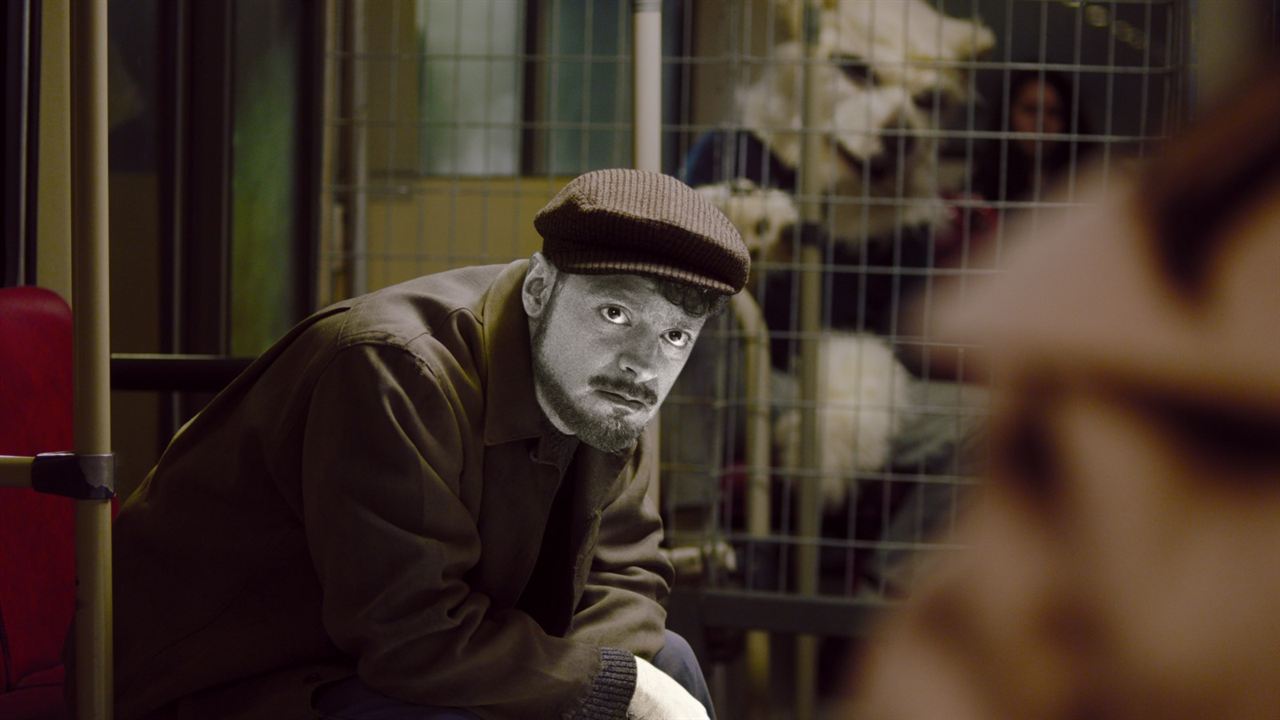In the UK, the richest one per cent of the population is now wealthier than the poorest 70 per cent combined. Just as in any unequal society, the story of your life is shaped by the circumstances into which you’re born. That trajectory is hard for anyone to escape. In German sci-fi tragicomedy The Ordinaries, director Sophie Linnenbaum takes an imaginative leap to examine and challenge these constrictive narratives.
The Ordinaries, which screens at the Glasgow Film Festival this week, takes place in a universe where status and opportunity follow the hierarchies of the movies. Main Characters live in full colour, their emotions soundtracked with dramatic scores as they live in luxury, and periodically burst into song from their sheer good fortune. Under them, the Supporting Characters are beige and muted, their very dialogue restricted as they are relegated to dull blocks of flats and the backgrounds. At the bottom, Outtakes live in squalor – many suffering from cinematic deformities, unintentionally glitching between scenes or plagued by out-of-context audience reactions.

“It’s a world that that talks about narratives in life and how narratives shape reality,” explains Linnenbaum. “Emotional storytelling shapes how we perceive people. So I wanted to talk about this empowerment possibility, to grab your own narrative.”
The high concept has echoes of Charlie Kaufman (whose Being John Malkovich is referenced in the low ceilings of the Outtakes’ zone) and Terry Gilliam (whose Brazil can be seen in the bureaucratic trappings and East German-style concrete backdrops), but for the high society scenes there’s also references to the Hollywood golden age, with Singin’ In The Rain-style song-and-dance routines. “We wanted to create a language that is universal, so we tried to find pictures that are kind of burned into our brains,” says Linnenbaum. “You don’t need to know film history to understand the references.”
The idea of using film trappings as a metaphor for social exclusion first came to Sophie Linnenbaum while she was studying at Konrad Wolf Film University of Babelsberg. Her short film [Out of Fra]me told the story of a man who “falls out of frame” from sheer loneliness. “Despite everybody telling me, ‘This is just a film for nerds, nobody will get it’, a lot of people came to me and talked about their feelings when they are not in frame,” she says. “So I stuck with this idea because I got so much interesting feedback.”

The Ordinaries is not simply the same story told over a longer time frame – a lesson that many early-career filmmakers could heed when turning a successful short into a debut feature – it’s a totally new story, set in the imaginative universe of its predecessor. At the centre of the film is Paula, a Supporting Character with dreams of being a Main Character just as her beloved father was before he was lost to the family in the midst of an Outtake uprising. Her quest to find out the truth about her own background brings her face to face with the lies she’s been told about the society she lives in.










